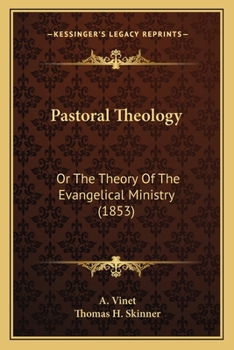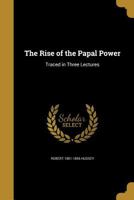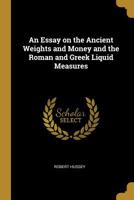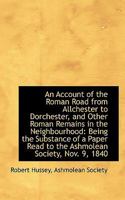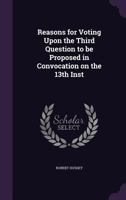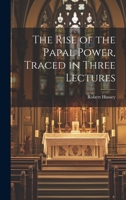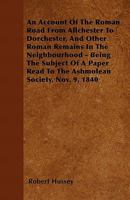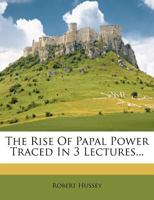Pastoral Theology: Or The Theory Of The Evangelical Ministry
Select Format
Select Condition 
Based on Your Recent Browsing
Book Overview
Pastoral Theology: Or The Theory Of The Evangelical Ministry is a book written by Swiss theologian Alexandre Vinet and first published in 1853. The book is a comprehensive guide to pastoral theology, which is the study of the role and responsibilities of pastors in the Christian church. Vinet's work is divided into three parts. The first part deals with the nature and purpose of the pastoral ministry, including the qualifications and character of a good pastor. The second part covers the practical aspects of pastoral work, such as preaching, counseling, and pastoral care. The third and final part focuses on the relationship between pastors and their congregations, including issues of authority, discipline, and accountability.Throughout the book, Vinet emphasizes the importance of the pastor's personal relationship with God and the need for humility, compassion, and wisdom in carrying out their duties. He also stresses the importance of adapting to the changing needs of the congregation and the wider community, while remaining faithful to the teachings of the Bible.Pastoral Theology: Or The Theory Of The Evangelical Ministry is a classic work of Christian literature that has been widely influential in shaping the practice of pastoral ministry in the Protestant tradition. It remains a valuable resource for pastors, seminarians, and anyone interested in the theory and practice of pastoral care.This scarce antiquarian book is a facsimile reprint of the old original and may contain some imperfections such as library marks and notations. Because we believe this work is culturally important, we have made it available as part of our commitment for protecting, preserving, and promoting the world's literature in affordable, high quality, modern editions, that are true to their original work.
Format:Hardcover
Language:English
ISBN:156663458X
ISBN13:9781566634588
Release Date:September 2002
Publisher:Ivan R. Dee Publisher
Length:229 Pages
Weight:3.45 lbs.
Dimensions:1.0" x 6.0" x 8.7"
More by Robert Hussey
Customer Reviews
2 customer ratings | 2 reviews
There are currently no reviews. Be the first to review this work.











